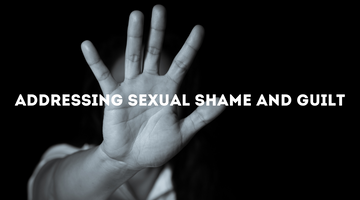
Sexual shame is often rooted in societal and cultural norms that view sex as something dirty or taboo. This shame can stem from personal experiences or messages received from family, friends, or religious institutions. It can lead to feelings of guilt and embarrassment about our bodies, desires, and sexual practices.
Sexual guilt, on the other hand, often stems from feelings of responsibility or remorse related to sexual experiences or actions. This guilt can arise from feelings of moral or religious conflict, or from feelings of disappointment or regret after a sexual encounter.
Both sexual shame and guilt can have negative impacts on our sexual lives and overall wellbeing. They can prevent us from exploring our desires, expressing our needs, and experiencing pleasure. They can also lead to anxiety, low self-esteem, and a lack of trust in our partners.
To address these emotions, it is important to start by acknowledging and exploring the sources of shame and guilt. This may involve looking at our own beliefs and experiences, as well as the messages and expectations that have been imposed on us by others.
It is also important to challenge the harmful cultural norms and messages that contribute to sexual shame and guilt. This includes questioning the stigma surrounding sexual desires and practices, and advocating for a more inclusive and accepting view of sexuality.
In addition to exploring and challenging the sources of sexual shame and guilt, it is also important to engage in self-care and seek support from trusted friends, family members, or mental health professionals. This can help to address and process these emotions, and to develop a more positive and healthy view of our sexuality.
It is also important to communicate openly with our partners about our desires, boundaries, and expectations. Good communication can help to reduce misunderstandings, increase intimacy, and create a safe and supportive sexual environment.
Finally, it is important to embrace and celebrate our sexuality, and to recognize the value and importance of pleasure and intimacy in our lives. This can involve taking steps to prioritize our sexual health and wellbeing, and to engage in activities and practices that bring us pleasure and satisfaction.
In conclusion, addressing sexual shame and guilt requires a combination of self-reflection, self-care, open communication, and a challenge to harmful cultural norms and messages. By addressing these emotions, we can improve our sexual lives and overall wellbeing, and experience the pleasure and intimacy that sexuality has to offer.




